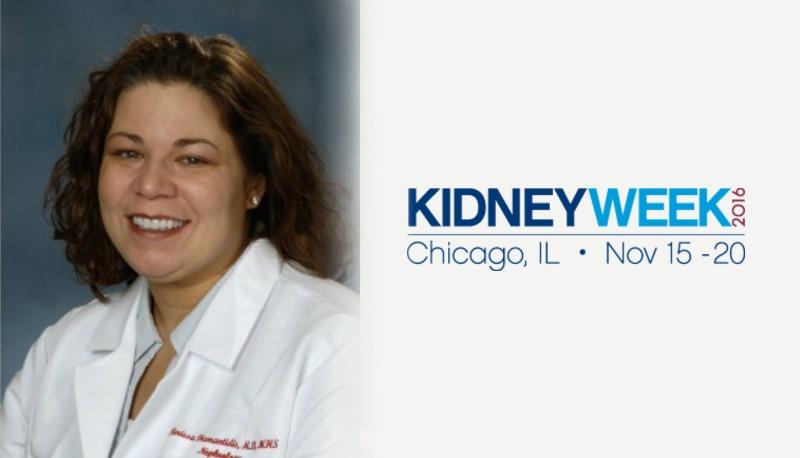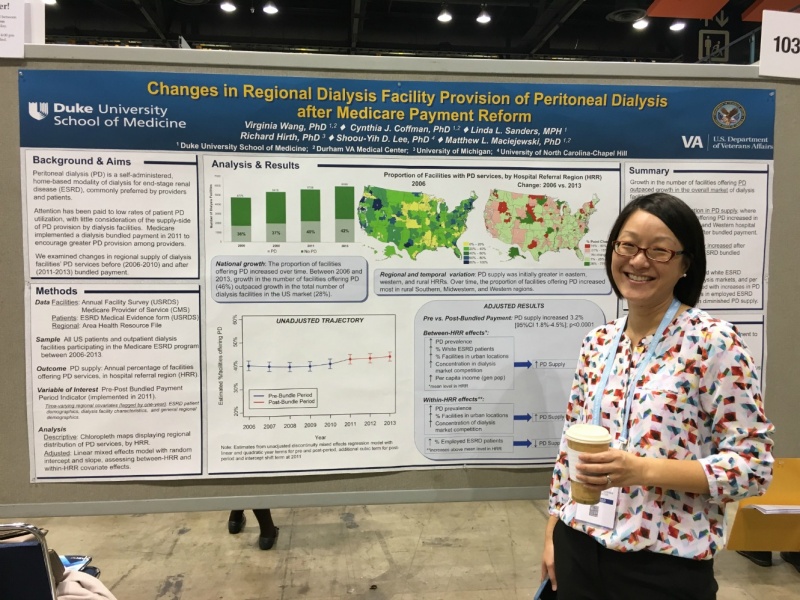
This blog post was submitted by: Clarissa Diamantidis, MD, Assistant Professor of Medicine, Duke General Internal Medicine.
Over 13,000 nephrologists and kidney disease researchers convened in Chicago, IL last week for the annual Kidney Week hosted by the American Society of Nephrology (ASN). Despite its name, event attendees hailed from both the United States and across the globe, eager to learn about current advances in the treatment of kidney disease.
Greeted by unseasonably balmy weather, I and several other researchers in the Duke Division of General Internal Medicine were in attendance. A plenary address by current ASN President Raymond Harris, MD kicked off the four-day event. In his remarks, Dr. Harris spoke of the future of nephrology, and emphasized the need for more specialized training pathways for clinicians, improvement in patient safety parameters for patients with kidney disease, and the need to develop an alternative to dialysis for the treatment of kidney failure.
Throughout the conference, there was significant emphasis on the need to not just prevent and treat kidney disease, but to develop a cure. As an extension of this, many lectures surrounded the concept of precision medicine as it relates to kidney disease risk, with particular attention devoted to APOL1 risk variants in African Americans. At a luncheon hosted by the Workgroup of the ASN, Griffin Rodgers, MD, Director of the NIDDK, described the NIH’s Kidney Precision Medicine Project and the need to diversify the nephrology workforce. ASN President-elect Eleanor Lederer gave an update on the ASN’s strategic plan, and highlighted the ASN’s mission statement to “prevent, treat, and cure kidney diseases.” Other notable topics included outcomes following episodes of acute kidney injury (AKI), population health initiatives, and disparities in renal transplant outcomes.
 Our own Division Chief, Dr. Boulware, spoke on the topics of health system innovation and patient engagement in kidney disease, and I was fortunate enough to to speak on the concept of mHealth to reduce disparities. The poster sessions showcased the work of several GIM researchers, including that of Leah Zullig, Virginia Wang (pictured left), and the Jackson Heart Study CKD Working Group.
Our own Division Chief, Dr. Boulware, spoke on the topics of health system innovation and patient engagement in kidney disease, and I was fortunate enough to to speak on the concept of mHealth to reduce disparities. The poster sessions showcased the work of several GIM researchers, including that of Leah Zullig, Virginia Wang (pictured left), and the Jackson Heart Study CKD Working Group.
As always, it was great to connect with old friends and colleagues and to share in our mutual passion for kidney disease research. I look forward to doing it again next year in New Orleans!